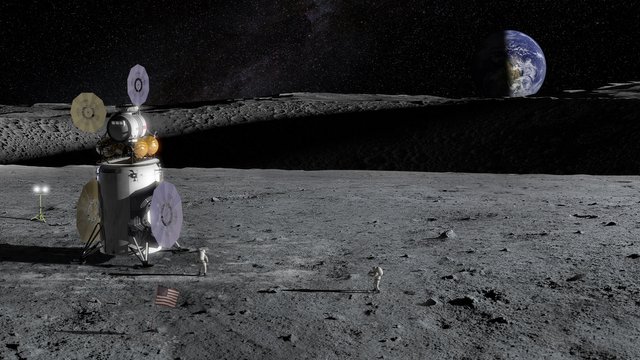Today it is reliably known that the Earth is the only inhabited planet in our galaxy. All attempts to find living beings on other celestial bodies were unsuccessful and the main reason is the conditions that are completely unsuitable for life.
Since it was the Earth that gave shelter to intelligent beings, life in general, other planets are also evaluated in terms of the presence or absence of similar conditions. The set of factors that allow the birth and development of life on the planet, scientists call vitality. It is determined by the mass of the planet, its composition, orbital characteristics and parameters of the "sun" around which the celestial body revolves.
Extraterrestrial water is of particular interest to astrophysicists. The surface of the Earth is two-thirds covered with water, but most importantly, this water is liquid. Water in such an aggregate state is not found anymore on any of the planets of the solar system. There is a hypothesis that there is water on the moons of Uranus, Jupiter, Neptune and Saturn, but it is under a thick ice crust, but until evidence is obtained, this theory will remain a hypothesis. And it is possible that water is available on the planets of other galaxies, but there is no reliable data on this either.
For a long time, scientists assumed that there is water on the moon. However, high-resolution telescopic images helped establish that the lunar "seas" and "oceans" are nothing more than craters and basalt plains. The studies carried out confirmed the presence of traces of water in the lunar soil samples , and later, in 2009, water was found on the Moon in a solid state - large accumulations of ice at the bottom of lunar craters. Today, astrophysicists have no doubts that the ice found is really water.

Craters on the surface of Venus
Source
Similar assumptions have been made about Venus. For a long time there was a theory of the existence of oceans on this planet, but it was debunked along with the sending of the first spacecraft to the surface of Venus. Some water vapor is found in the planet's atmosphere, however, temperatures are too high on the surface. Perhaps water on the planet existed in the distant past, but in what form, directly in liquid or in the form of vapor, is unknown. One way or another, today life on Venus is impossible.
Particular hopes were pinned on Mars: while studying the red planet through a telescope, many scientists observed a network of channels on its surface, the origin of which was explained by several theories. One of them was the presence of water currents, rivers and seas, the other assumed the existence of life and argued that the channels are of artificial origin. No wonder it was Mars that was so loved by science fiction writers, and it seems that the alien green men are waiting for the meeting and contact with earthlings.
Later, attempts were made to study the channels, but the compiled maps did not coincide with each other in any way, causing bewilderment. Photographs taken in the twentieth century made it possible to assert that there is no liquid water on the surface of Mars . And the artificial satellite of Mars "Mariner 9" put all the points above the "I": most of the known channels turned out to be an optical illusion. A small amount of water was found in soil samples, a certain amount of water ice on the planet also exists, and there is also water in the permafrost layer, but all this is clearly not enough for the existence of life. It is possible that Uranus and Neptune have seas of hot water, but the structure of these planets is poorly understood.
Particular hopes are pinned on the satellites of the gas giants. They are covered with a thick crust of ice, under which water reserves can be stored. Scientists believe that water can be found on Europa, Callisto and Ganymede. These planets are covered with a thick layer of many kilometers of ice, under which water can be in a liquid state. Many satellites of the giant planets are composed of people to a greater or lesser extent, but it cannot be taken as extraterrestrial water, which makes it possible to find life.
Since life and conditions for its existence are absent on the planets of the solar system neighboring the Earth, scientists continue to search for life beyond its borders. A huge number of planetary systems are known, but our system is very different from them. The goal of the search is a planet with conditions that are similar to those on Earth. Constantly improving instruments and methods for studying cosmic bodies make it possible to move forward and make it possible to study more and more distant objects.
It is possible that somewhere in outer space a planet will be discovered, on which there will be a sufficient amount of living water, but after all, not only water is the key and the only factor in the origin of life. On the other hand, if we take into account other forms of life, different from terrestrial inhabitants, then perhaps water is not needed at all for their existence?


